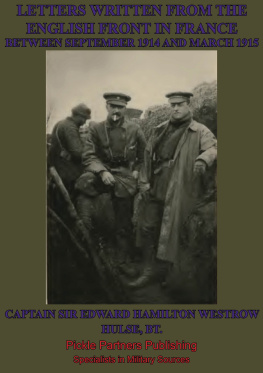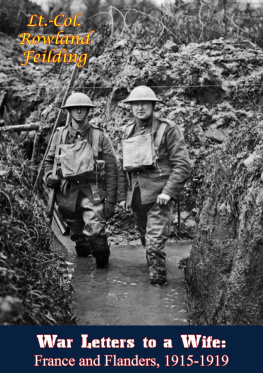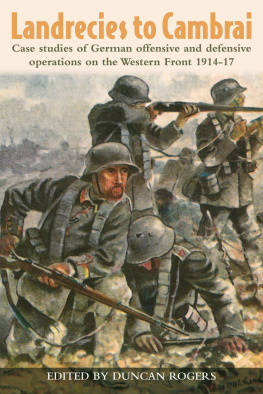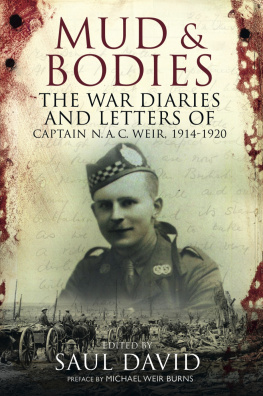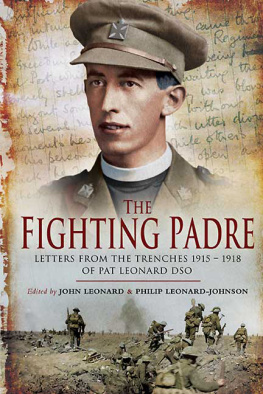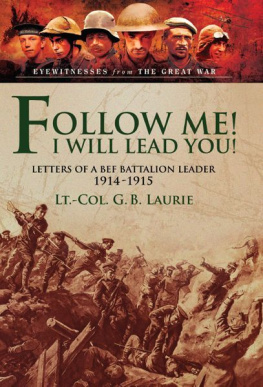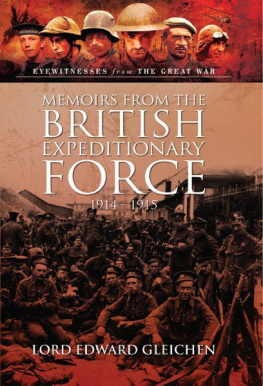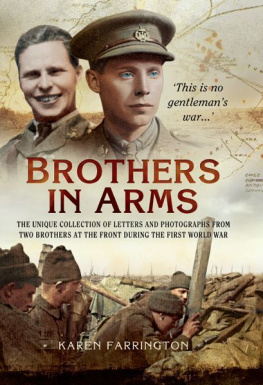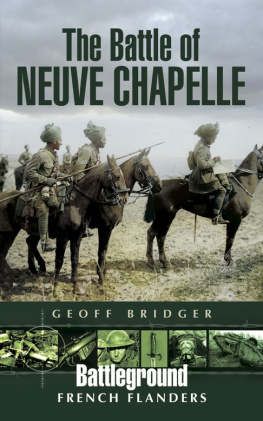

This edition is published by PICKLE PARTNERS PUBLISHING www.picklepartnerspublishing.com
To join our mailing list for new titles or for issues with our books
Or on Facebook
Text originally published in 1916 under the same title.
Pickle Partners Publishing 2013, all rights reserved. No part of this publication may be reproduced, stored in a retrieval system or transmitted by any means, electrical, mechanical or otherwise without the written permission of the copyright holder.
Publishers Note
Although in most cases we have retained the Authors original spelling and grammar to authentically reproduce the work of the Author and the original intent of such material, some additional notes and clarifications have been added for the modern readers benefit.
We have also made every effort to include all maps and illustrations of the original edition the limitations of formatting do not allow of including larger maps, we will upload as many of these maps as possible.
LETTERS WRITTEN FROM THE ENGLISH FRONT IN FRANCE BETWEEN SEPTEMBER 1914 AND MARCH 1915
BY
CAPTAIN SIR EDWARD HAMILTON WESTROW HULSE, BT.
2ND BATTN. SCOTS GUARDS
TABLE OF CONTENTS
Contents
INTRODUCTION
THE nature of these letters is clear at the first glance. They are simply a record of the earlier months of the war from the point of view of a young officer of the English Expeditionary Force. But they possess both interest and importance apart from the fact that in these months the first swift onrush of the Germans towards Paris was repulsed, and, perhaps, the issue of the whole war decided. They are written with accuracy because Edward Hulse, who was in the heart of the retreat from Mons, the turn and triumph of the Marne, and the beginning of the long station at the Aisne, rarely turns aside from the story of his own experiences; they are written with ease because, without exception, they were written to his mother without a thought of publication. The life of an officer at one or other of our varied fronts from the first disembarkation to the struggle at Neuve Chapelle, whether in billets, in hospital, at the base, or in the trenches, is here touched in with a convincing because unconscious hand, and with a fullness of detail that is invaluable.
The writer of these letters had a sense both of perspective and of humour,without which all records are but as the dry bones of the events they chronicle. For example, the rapid and careless pen-sketches that describe the work of a night raid, the reception of a prisoner, the excitement of a sniping party, the confusion at Havre, and a dozen other incidents of that crowded half-year are every one of them admirable. But there is something else in these letters which is of even greater interest. Without hesitation it may be said that in the fourteen pages under the date December 28th we have the most keenly noted, vigorous and dramatic description that ever has or ever will be written of what from a psychological point of view has been the most extraordinary event of the war,the Christmas Truce of 1914. In its mere literary aspect it is as perfect as anything written from the front: and as a human document it is of even greater value.
No reader of this short autobiography,for it is nothing less,will fail to recognise the difference that distinguishes these Christmas letters from that first keen report of current gossip and opinion in London written from the Bachelors Club on the eve of the war. The development that has taken place in the writer under the stress of a new and hard life of direct responsibility is clear in every line of them, and though, no doubt, it is typical of a similar growth in most of the junior officers at the front, there are probably few other cases in which this self-development has been recorded as continuously and as fully, and fewer still in which such a story has been unfolded in a series of letters to one recipient, almost every word of which could be and is here reproduced. Essentially, the man remains the same throughout. The letters begin with the free criticisms and soldier-like impatience of a young officer: they end on the same note with as clearly expressed an opinion of the unpatriotic influences at work in England. But the tale of work done between the writing of the two has not only given him the better right to speak, but has added weight to the form in which his protest is moulded. He writes the first letter as any Guardsman full of the spirit of his corps might have written it. In his last long letter his estimate of the fighting value of the as yet untried and roughly disciplined Canadians shows how far he had gone in the power of summing up a mans essentials at a glance.
But there will be many who will read these pages with an eye to the development neither of the soldier nor of the writer; many to whom the value of truthful observation and an unfailing record of it will be of less interest and account than the self-revelation of the personal character of Edward Hulse himself. Of this it is almost unnecessary to write here. Those who in the first instance will read this small volume will have known him personally. Those into whose hands it will come in later years will be dull if they need more to be told them of Edward Hulse than is suggested in the letters in this book. He was a man of much charm and of many friends. In the hour of trial he developed into a resourceful and capable officer to whom his men were devoted. Having done his work steadily up to the last minute, he was killed at Neuve Chapelle. His commanding officer fell severely wounded, and Edward Hulse, after making his way across to him in the open and doing what he could to help him, was killed in rejoining his men.
These letters, though they contain not a line of the introspection which so often characterises messages from the front, are his real memorial. Perhaps, in years to come, after the dust and turmoil of the war has died down, of those who lay this little volume down there will be the greater number who will do it with the thought in their minds that a man who is indeed a judge of men once expressed. He read but one of these letters, packed with incident and picturesque detail, redolent of the very clay and tense life of the trenches, and full of exact and valuable information: but his only comment was, I should like to have known that man.
PERCEVAL LANDON.
FOREWORD
SIR EDWARD HAMILTON WESTROW HULSE, Bt., was the only child of Sir Edward Henry Hulse, Bt., of Breamore House, Hants, and the Hon. Lady Hulse, only daughter of the first Lord Burnham. He was born at 26 Upper Brook St., Westminster, on August 31st, 1889, and was christened at Breamore. He succeeded his father in 1903. As a child he attended Mr. Marcons school at Beaconsfield, and afterwards went to Mr. A. Max-Wilkinsons at Warren Hill, Eastbourne, Sussex. In 1903 he entered Mr. R. S. Kindersleys house at Eton, and afterwards matriculated at Balliol College, Oxford, in 1907, taking his degree in 1912.
After a period of training with the Coldstream Guards, he was given a commission in the 1st Battn. Scots Guards on March 8th, 1913, and went to the front at Mons with it in August 1914. In November he was transferred to the 2nd Battn., and remained in it until his death.
Captain Sir Edward Hulse was killed at Neuve Chapelle on March 12th, 1915, and a tablet recording the manner of his death was put up to his memory in the Cathedral by the citizens of Salisbury. This tablet was dedicated by the Bishop of Salisbury on March 11th, 1916.
Next page
